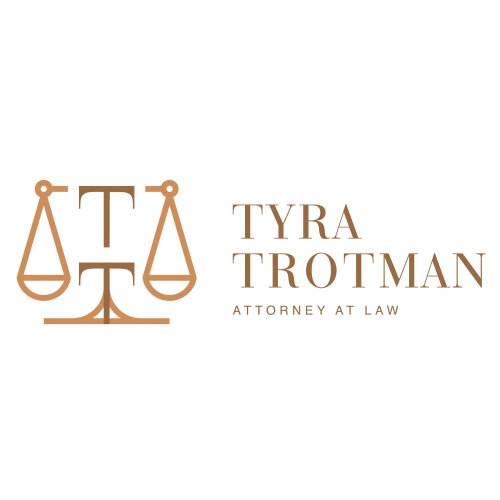Best Renewable & Alternative Energy Lawyers in Worthing
Share your needs with us, get contacted by law firms.
Free. Takes 2 min.
List of the best lawyers in Worthing, Barbados
About Renewable & Alternative Energy Law in Worthing, Barbados
Worthing, Barbados is gradually embracing renewable and alternative energy solutions as part of a wider national effort to support clean energy, reduce reliance on imported fossil fuels, and promote environmental sustainability. Renewable and alternative energy laws in Worthing pertain to energy sources such as solar, wind, bioenergy, and ocean energy. This legal field covers the frameworks that govern the development, installation, operation, and regulation of energy technologies, ensuring both private individuals and businesses can navigate the transition to cleaner energy while complying with local rules and securing available incentives.
Why You May Need a Lawyer
Whether you are a homeowner looking to install solar panels, a business seeking to develop a wind farm, or an investor interested in renewable projects, you may encounter complex legal issues. Situations where legal help may be required include securing permits for renewable energy installations, understanding tax incentives, negotiating contracts with energy providers, resolving disputes over land use, or ensuring grid compatibility. Lawyers can also help with regulatory compliance, drafting agreements for leasing or selling energy infrastructure, and representing clients in case of regulatory challenges or litigation. They can provide guidance on how to benefit from government programs and avoid costly mistakes.
Local Laws Overview
Barbados has made significant strides in encouraging the adoption of renewable and alternative energy. Central to this is the Barbados National Energy Policy, which sets ambitious goals like achieving 100 percent renewable energy by 2030. In Worthing, energy projects must comply with regulations from entities such as the Fair Trading Commission and the Government Electrical Engineering Department. There are standards governing grid interconnection, safety, and environmental impact, in addition to requirements for planning permission and licenses for commercial-scale operations. Investors and developers can also benefit from several incentives, such as the Renewable Energy Rider or duty-free concessions on equipment. Understanding these laws and processes is critical before starting any project.
Frequently Asked Questions
What is considered renewable or alternative energy in Worthing, Barbados?
Renewable and alternative energy includes sources such as solar, wind, biomass, ocean, and small-scale hydro energy. These are alternatives to traditional fossil fuels and are promoted for their sustainability.
Do I need permission to install solar panels on my property?
In most cases, installing solar panels requires approval from the Town and Country Planning Office and adherence to electrical safety standards set by the Government Electrical Engineering Department.
Are there incentives or subsidies for renewable energy projects?
Yes, Barbados offers tax credits, duty-free concessions for renewable energy equipment, and feed-in tariffs for selling excess electricity back to the grid through the Renewable Energy Rider program.
How can I sell electricity generated from renewable sources to the national grid?
You must apply for approval from the Fair Trading Commission and enter into an agreement with the Barbados Light & Power Company. Interconnection and safety standards must be strictly followed.
What regulations govern commercial renewable energy projects?
Commercial projects require various licenses, planning permissions, and must comply with environmental assessments and grid connection standards established by relevant government agencies.
What happens if my renewable energy system does not comply with local regulations?
Non-compliance can result in fines, removal of equipment, or legal action by regulatory authorities. Proper legal guidance helps prevent these issues by ensuring all permits and standards are met.
Are there restrictions on where I can place renewable energy installations?
Yes, installations may be restricted in certain residential, heritage, or environmentally sensitive zones. It is essential to check zoning and planning requirements before proceeding.
Can foreign investors participate in renewable energy projects in Worthing?
Foreign investors are welcome, but they must comply with local investment, environmental, and energy regulations. Legal advice ensures adherence to all applicable laws and investment protections.
What role does the Fair Trading Commission play in renewable energy?
The Fair Trading Commission regulates the electricity sector, sets grid codes, approves tariffs, and ensures fair competition. It is a key authority in all renewable energy matters.
How can a lawyer help me with my renewable energy project?
A lawyer can guide you through the regulatory landscape, secure all necessary permits, draft or review contracts, advocate before authorities, and resolve disputes to protect your interests throughout the project.
Additional Resources
For further information or assistance on renewable and alternative energy in Worthing, Barbados, consider reaching out to the following organizations and bodies:
- Barbados National Energy Policy Unit - For guidance on policy and national incentives
- Fair Trading Commission - For questions on utility regulation and grid interconnection
- Government Electrical Engineering Department - For electrical safety and compliance advice
- Town and Country Planning Office - For planning permissions related to energy projects
- Barbados Light & Power Company - For information on selling electricity to the grid
- Barbados Renewable Energy Association - For industry updates, events, and networking
- Barbados Investment and Development Corporation - For advice to foreign investors
Next Steps
If you are considering a renewable or alternative energy project in Worthing, Barbados, it is wise to consult with a legal professional experienced in local energy regulations. Start by documenting your project plans, identifying your questions, and reviewing available incentives. Next, contact a qualified lawyer to assess regulatory requirements, complete application processes, and ensure that your project is fully compliant. Proactive legal support can help your project progress smoothly, avoid regulatory hurdles, and maximize your investment benefits.
Lawzana helps you find the best lawyers and law firms in Worthing through a curated and pre-screened list of qualified legal professionals. Our platform offers rankings and detailed profiles of attorneys and law firms, allowing you to compare based on practice areas, including Renewable & Alternative Energy, experience, and client feedback.
Each profile includes a description of the firm's areas of practice, client reviews, team members and partners, year of establishment, spoken languages, office locations, contact information, social media presence, and any published articles or resources. Most firms on our platform speak English and are experienced in both local and international legal matters.
Get a quote from top-rated law firms in Worthing, Barbados — quickly, securely, and without unnecessary hassle.
Disclaimer:
The information provided on this page is for general informational purposes only and does not constitute legal advice. While we strive to ensure the accuracy and relevance of the content, legal information may change over time, and interpretations of the law can vary. You should always consult with a qualified legal professional for advice specific to your situation.
We disclaim all liability for actions taken or not taken based on the content of this page. If you believe any information is incorrect or outdated, please contact us, and we will review and update it where appropriate.











